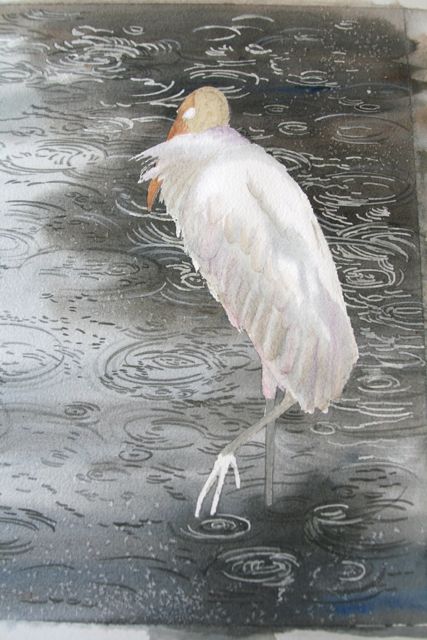Dirty White: absurdist parable

Theatre Terrific's Dirty White is a poetic parable that draws inspiration from Ovid's Metamorphosis. Director and playwright Susanna Uchatius shows a deft hand when it comes to metaphoric language: the play is rich with imagery and absurdist aphorisms whose meanings are cryptically slanted but still honed to an edge. Dirty White avoids the common pitfall of deliberately poetic writing by steering clear of extended, repetitious passages: though it is unabashedly lyrical writing, the phrasing is tight and the imagery varied.
The Ovidian premise is immediately apparent: an omniscient god (Christian G.H. Prohom, who resembles Bill Gates in cricket whites) surveys his domain. Sighting an earthy maiden in homespun clothing (Sindy Angel), he falls instantly in lust and spirits her away from the forest pool where she bathes to his (ultra-hygenic) heavenly kingdom. There she is put under the guard of the god's long-suffering servant Raven (Manuel Schulte in white coat-tails). Rounding out the cast are Adam Lindgren as the woman's missing brother, and Charlie Wilson as the quixotic Daw, a second bird-like trickster who plays games and bears witness throughout the tale. (Wilson, who works with Aeriosa Dance, brings an acute physical awareness to her role that is wholly charming).
Dirty White places familiar archetypes in a satisfyingly postmodern setting. Small signifiers carry large meanings in the play: the god uses an iphone to control the actions of those around him, while Raven is identifiable as a bird by a single feather in his hair. The Daw "flies" across the stage with brown gloves clutched in her fists that resemble a flock of crows as she tosses them away. The story is told not through direct narrative but though the layering of fragmented image upon fragmented image.
Characters speak around each other, and though at times their words are cryptic ("love is the fragrance of lunar butterflies imagining their way to sunlight -- and then they burn!") there is communication between characters at a meta-level: fear, confusion, passion, anger are all starkly apparent though the prism of the words. The fragmentation of the language works in the play's favour: too long on the subject of lunar butterflies, and audience would tire of the conceit, but a brief flash of metaphor before moving on to the next image is enough to set up an association, a resonance, a suggested meaning.
Dirty White takes real risks in tackling beloved and well-worn mythological themes, and its original use of language helps to keep the play's grand ambitions afloat. Less successful is the overarching story: the maiden, Cora seeks her long-lost brother, missing since their family was destroyed by an invading army. She petitions the god for aid. When she eventually finds her brother she learns that he was made a child-soldier and taught to kill. After their reunion, she dies along with the willful god, because the human world has lost its faith in supernatural beings.
The plot certainly contains the elements of a high tragedy -- a divided family, a cruel god, loss, reunion, further loss through twists of fate. Yet it never quite takes off: the death of the god and Cora is another quirky post-modern twist that turns the seeming stable world of the play on its side (much like the old joke: how do you get out of a room with no doors or windows when all you have is a mirror and a table?). Humour aside, the play seems to come to a sudden and arbitrary conclusion.
The relationships of Dirty White also seem to call for further development: the story of the murdered family and the child-soldier is very dark and all-too-relevant to the current day. Yet it is largely left to the audience imagination, hinted at allegorically when Cora tells of a family of birds threatened by farm machinery. This framing of of Good versus Evil, Innocent Nature versus the Bad Machine seemed too simple to be emotionally satisfying, while the details of the real story are merely sketched.
Dirty White is never about realism, and so it makes little sense to demand it at the end. The question is rather one of balance. The play does very well at setting up a universe that is both whimsical and cruel, a fantastical lens though which to examine human passions, but then it rushes through to the conclusion. Dirty White generates a lot of honest emotions but these are too lightly glossed, and so, though the depiction is thoroughly entertaining, it does not ring quite true.



